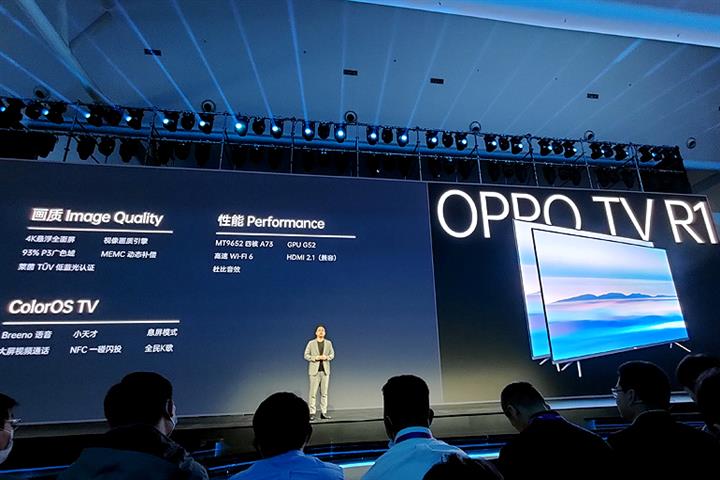 China's Oppo to Join Costly IoT Race With First Smart TV
China's Oppo to Join Costly IoT Race With First Smart TV(Yicai Global) Oct. 21 -- China's Oppo Mobile Telecommunications is making inroads into the precarious field of smart TV set manufacturing to fuel its handset ecosystem amid diversifying user demands.
Connected devices inspire new uses and that's where breakthroughs and value creation lie, Liu Bo, vice president of the Dongguan-based firm, told Yicai Global yesterday. "Rising prices of TV panels and memory materials but declining TV unit prices do not mean no opportunities in the TV field."
Oppo released its first smart TV sets, Oppo TV S1 and R1, along with other Internet of Things products on Oct. 19.
Having an IoT ecosystem may be becoming a premise for phone sales. Industry giants Huawei Technologies, Xiaomi and Apple all have zoned in on their IoT positioning, according to Li Yaqin, general manager of Sigmaintell Consulting.
But the TV sector has its perils. "China’s TV industry from the upstream panel plants to the downstream assemble factories is unprofitable," Li added. One alarming example is Leshi Internet Information and Technology that failed after relying on paid content for most of its profit.
But Oppo is not too worried. TV sets are a core device in a smart home and Oppo won’t be profit-oriented in the field, according to Liu. The company is looking to integrate audio, video, visuals, and the internet to improve TV watchers' user experience, he added.
Oppo will focus its IoT strategy on personal entertainment, home, sports and fitness and jointly develop experimental products with third parties. The firm has formed partnerships with over 30 brands such as Midea Group and Aux Group and brought in more than 50 categories of products and over 300 stock-keeping units.
The handset maker uses Android-based ColorOS in its TV sets and watches. The same operating system enables the TV to turn off automatically when the user seems to have fallen asleep, according to the VP. It also allows the user to seamlessly use the TV screen for video calls, he added.
Editor: Emmi Laine